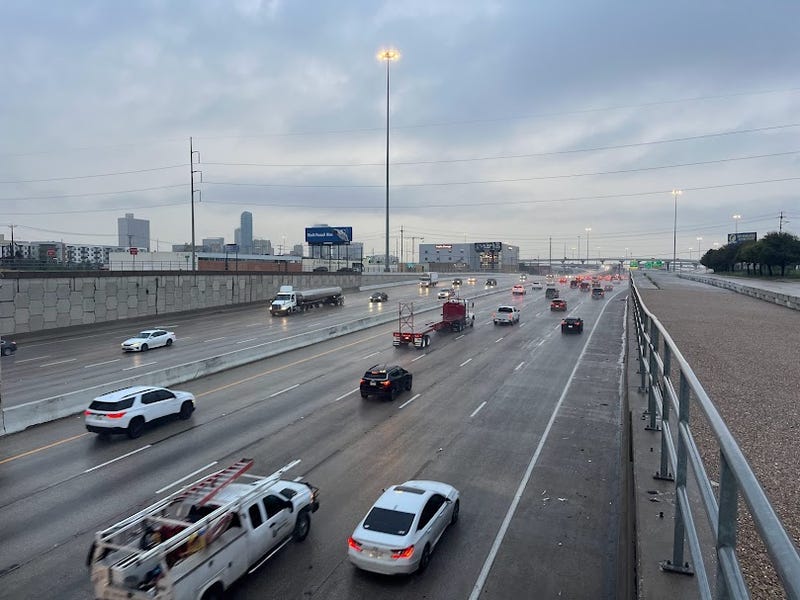
A company that develops software for autonomous trucks is now testing technology in Texas. Plus is now working on highways among the Metroplex, Houston and San Antonio.
"Autonomy is not coming. It's actually now," says Plus Vice President of Policy & Regulatory Affairs Earl Adams Jr.
Adams says artificial intelligence may be driving trucks, but they still have a human in the cab in case of emergency. He says Texas has developed a regulatory environment that can help companies develop the technology.
"It's this perfect marriage where the governor, the head of TxDOT, business leaders, everyone is using their bully pulpit to help encourage deployment and focus of AVs," he says. "Texas, by its nature, loves taking the lead on things."
The American Trucking Association says the industry faces a shortage of 80,000 drivers, and that could increase to 120,000 by 2031. Adams says pursuing driverless technology can help businesses bridge that shortage and keep the economy stable.
Plus is working with several companies, including International in San Antonio, to deploy the technology. The software is built into trucks when they are first manufactured instead of added later.
"We know there are going to be safety benefits," Adams says. "When you look at the techonology, we have the sensor array. We've got radar, lidar and cameras. That gives you a 360 degree, birds-eye view of what's going on around the truck."
He says Plus' software will perceive a situation such as a red light. He says the software then considers the environment and makes a prediction of whether it is safe to move forward when the light turns green.
"When it turns green, it doesn't just move," he says. "It is then making a prediction based on all the different variables it sees, 'What is the likelihood that car coming is going to run its red light?'"
Drivers are still in the trucks presently, but Adams says ultimately, self-driving trucks will be able to work on their own and will run more efficiently, helping businesses plan the size and timing of shipments.
"They can drive much longer. You don't have to stop for bathroom breaks. Other than stopping for gas because we haven't solved that yet, that's the only thing that's going to stop them," he says.
Adams says he also does outreach with community groups to help people see trucks driven by artificial intelligence will not pose a threat. In many cases, he says they will be safer because computers do not get tired, distracted by cell phones or drive aggressively.
"This actually, in our opinion, is going to make these commercial vehicles even safer on the road than what they are currently," he says.
While the American Trucking Association says companies cannot fill their open jobs now, Adams says artificial intelligence will not entirely eliminate the need for drivers in the future. Self-driving trucks are likely to be used most often to move cargo among distribution centers.
"There's always going to be that need for the last-mile driver," he says. "That will actually be beneficial to drivers because they will actually be able to get home at night."
Adams says Plus will use information gathered from Texas to show the trucks are moving safely, and he hopes that will convince the public autonomous trucks are safe on highways.
"We'll be able to provide the data to show, frankly, the [autonomous vehicle] driver can make better decisions than the human driver," he says.
